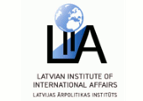Foto: bbum
Vai Krievijas piena karš ar Lietuvu ir Maskavas centieni vēlreiz apliecināt savu ietekmi Austrumeiropā?
Krievijas patērētāju tiesību aizsardzības aģentūra uzskata, ka Lietuvas importa produktu inspekcijā atklāti vairāki produktu kvalitātes un higiēniskie pārkāpumi, kā arī likumpārkāpumi patērētāju tiesību jomā. Savukārt, Eiropas Komisija apgalvo, ka ir pilnībā pārliecināta par Lietuvas produktu atbilstību kvalitātes standartiem un aicina Krieviju uz diskusijām. Vai Lietuvai atbildēt ar to pašu, uzliekot līdzīgus ierobežojumus, piemēram, ļaunprātīgi izmantot Kaļiņingradas apgabala izolētību un nogriezt tam pieeju?
The dairy industry in Lithuania has been recently hit with a partial ban on imports into neighboring Russia. The following measure threatens to deal a damaging economic blow to Lithuania that directs 85 percent of its dairy exports to Russia.[ 1 ]
The Russian consumer protection agency Rospotrebnadzor said inspections of Lithuanian dairy imports had revealed ‘numerous violations’ of quality and sanitary standards in products as well as legislative violations in the field of consumer rights and in human disease control and prevention.[ 2 ] The European Commission, however, said it had ‘‘complete confidence in the quality of Lithuanian dairy products’’ and ‘‘called for discussions with the Russian side’’. [ 3 ]
While Onishchenko regularly denies that there is any connection to geopolitical moves, there are few who doubt that main reasons are political ones. According to Pikunas, ‘‘this move from neighboring country and one of the largest Lithuania’s trading partner adds up to the list of other punitive measures that Russia has been increasingly applying against Lithuania starting last month’’.[ 4 ] It all began with a temporary tightening of customs checks for Lithuanian goods at the Russian border in September that reportedly caused long delays and losses estimated at over €2 million per day.[ 5 ]
The discriminatory measures brought relations between two countries to their lowest point for years, and it could be argued that there are at least three reasons complementing each other that might have triggered the situation.
1. Eastern Partnership
The first reason behind Russia’s hostile policy is approaching the EU Eastern Partnership Summit that will draw six countries – Ukraine, Belarus, Moldova, Georgia, Azerbaijan and Armenia – more closely into the European fold. (All six are viewed by the Kremlin as a historic part of its sphere of influence). Of the 15 former republics that became independent states when the Soviet Union disintegrated, only the Baltic States have joined the EU and NATO, and majority of scholars argue that Putin is furious that others may follow suit.[ 6 ]
By putting pressure on Lithuania, which currently holds the rotating presidency of the European Union and which is a strong supporter of the EU Eastern Partnership process, Russia hopes to derail the Vilnius Summit due on November 28-29.[ 7 ]
At the summit, which will come four years after the launch of the Eastern Partnership, the EU is scheduled to sign a political association and free trade accord with Ukraine and may take further steps towards such deals with Moldova and Georgia. (No substantial progress is expected with the other partnership states such as Belarus and Armenia, which remain more closely aligned with Moscow).[ 8 ]
Russia, on the other hand, has been building its own trade alliance with former Soviet republics and wants several of the countries, particularly Ukraine, to sign up to its own Customs Union launched with Belarus and Kazakhstan in 2010.[ 9 ]
2. Charges against Gazprom
The second reason is related to the assumption that Russia has put additional discriminatory measures on Lithuania in an attempt to force Lithuania to withdraw its claim against Russia’s gas giant – Gazprom – from the Stockholm Arbitration Tribunal. Lithuania sued Gazprom for $1.9 billion, claiming that the Russian oil company overcharged it for gas: officials argue that Lithuania pays 35 percent more than Germany for gas under its contract with Gazprom.[ 10 ] Moreover, Gazprom is also being investigated by the European Commission: under the EU rules, Gazprom could face a fine of up to 10 percent of their annual revenues.[ 11 ]
3. Interference in Lithuania’s domestic policy
Finally, Russia may still be interested in the Baltic States and seek to recover the region into its sphere of interest: Lithuania will hold presidential election next year, and as presidential campaign intensifies so does Russia’s attempts to affect Lithuania’s internal politics. In this case Russia is using discriminatory measures to boost its influence by implementing painful economic and trade means that could undermine internal political situation in the country and lead to the assumption that Lithuania needs new leadership. [ 12 ]
Conclusion: the EU and Lithuanian response
Lithuania considers several possible options: firstly, Lithuania could block Russia’s road and rail access to its enclave of Kaliningrad if Moscow keeps pressuring its neighbors over their cooperation with the European Union. For instance, Foreign Minister, Linas Linkevičius said: ‘‘we could also apply the same measures. As you know, the Kaliningrad region is geographically isolated, so we could also apply measures to cut something’’.[ 13 ] However, the minister has also pointed out that ‘‘it was not discussed, it is not our way of thinking, it is not our method’’.[ 14 ]
The second measure is an action against Russia at the World Trade Organization. However, ‘‘Lithuania as a member state of the EU cannot independently initiate dispute settlement proceedings against Russia in the WTO, since it falls within the Community’s exclusive competence’’.[ 15 ] At the same time, EU officials have already been closely monitoring the growing list of provocations: Catherine Ashton, the EU’s foreign policy chief, raised the issue during the meeting with Sergei Lavrov on the margins of the UN General Assembly last month.
All in all, Russia should look for other ways to benefit from European integration instead of trying to block the European Partnership processes. Currently this measure only caused immense losses to Lithuanian local businesses as well as impeding cross-border communication along Lithuanian-Russian borders.[ 16 ]
